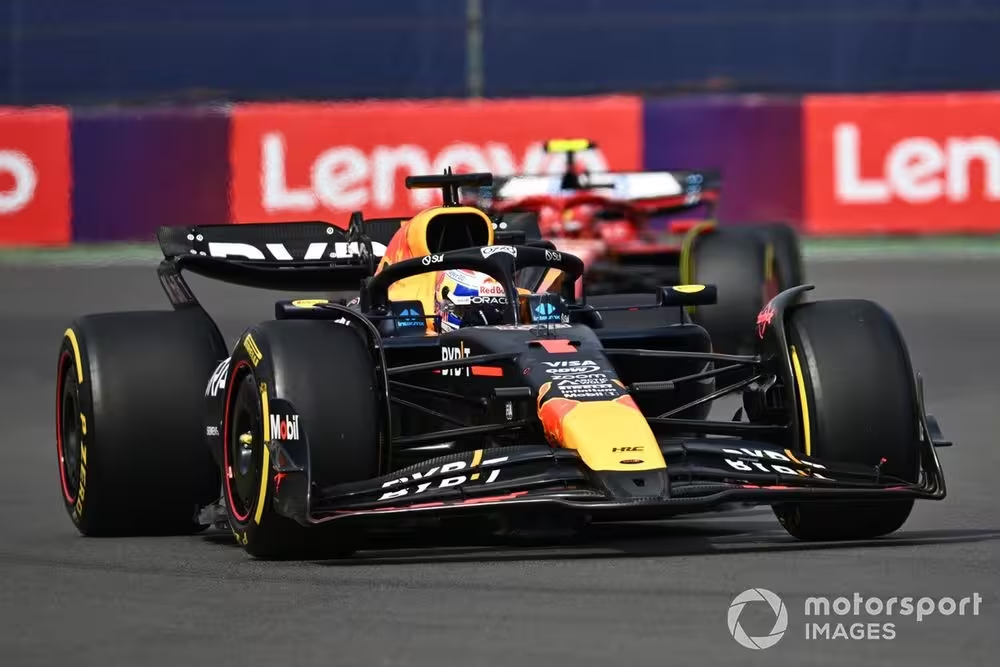Max Verstappen could be set for an engine change grid penalty at this weekend’s Brazilian Grand Prix, with Red Bull worried about his lack of straightline speed.
The Dutchman had a difficult time in the Mexico GP with engine problems during practice on Friday forcing an unprompted power unit switch for the rest of the weekend.
And while the use of his pool engine meant no further mechanical issues, its high mileage meant a decline in its performance and hampered the three-time world champion in the race.
Speed trap figures across the start/finish straight, before DRS is activated, showed Verstappen topped out at 251.4km/h – which was well adrift of team-mate Sergio Perez on 253.4km/h.
Verstappen was second slowest of all at the first intermediate trap, logging 299.6km/h compared to Perez on 303.1 and title rival Lando Norris on 307.9km/h.
With Red Bull already on the backfoot with its RB20 struggling to match the race form of Ferrari and McLaren, the team knows it probably needs to commit to a fresh power unit to help boost Verstappen’s hopes – and Interlagos makes sense because it is a track where overtaking is easier.
While the key talking point after the race for Verstappen was on his penalties for driving infringements against Norris, Red Bull says that the lack of speed is a much bigger worry.
Red Bull motorsport advisor Helmut Marko told Autosport: “More alarming is that we couldn’t make the tyres work – both medium and hard.
Max Verstappen, Red Bull Racing RB20, Carlos Sainz, Ferrari SF-24
Photo by: Simon Galloway / Motorsport Images
“We were nowhere near the two front teams, and I guess part of the problem is that Friday, we couldn’t drive because of the engine problems.
“We have to do something, that’s clear. We also will have a change the engine because we had been so slow on the straight.
“This engine, which was in the car, was not supposed to be in the car, so most likely Brazil could happen.”
Speaking to Austrian broadcaster ORF, Marko said that the engine Verstappen used in the Mexico race had only been intended to be used in practice sessions for the remainder of the campaign.
“The engine we had in there was no longer intended for the race, and the older an engine gets, the more its performance diminishes,” he said.
“The penalty would be five places. That wouldn’t be so severe in Brazil, for example, where you can overtake relatively easily. But we saw that we were missing…
Click Here to Read the Full Original Article at Autosport.com – Formula 1 – Stories…

